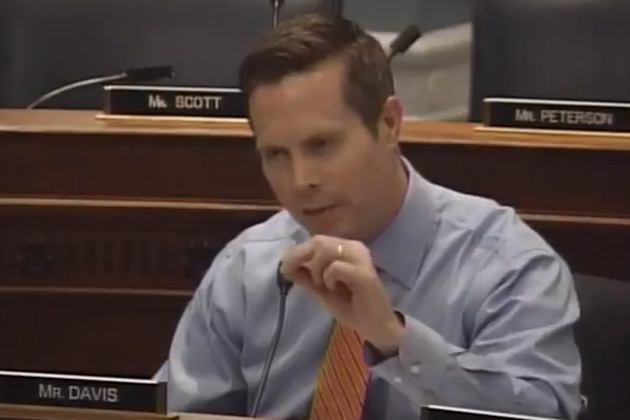
By Greg Bishop/Illinois Radio Network
WASHINGTON – U.S. Rep. Rodney Davis, R-Taylorville, said he has been asked by the White House to help revive efforts to change the nation’s health care law.
“Keeping the status quo is unacceptable,” Davis said. “If we do nothing, in the year 2020, because of planned reduction in Medicaid reimbursements, the state of Illinois is going to have to come up with potentially hundreds of millions of dollars. I don’t think anyone in Springfield thinks we can make that happen right now.”
It’s unclear what the proposed reform would look like. Castle Group Health President Mark Gurda, of Northbrook, Illinois, said it’s hard to trust anyone in the debate.
“I don’t think there are any credible sources you can rely on for dictating the road forward,” Gurda said. “Do you trust the Democrats in the health care reform? Not necessarily. They got us to this point, and they think there’s nothing wrong. If the Republicans go along and say there’s nothing wrong, you may find yourself in September with a third or half the country with no insurers. You can’t play that chicken game. The stakes are too high.”
Politicians aren’t the only ones in the debate who can’t be trusted, he said.
“Can you trust the insurers to do what’s right for the public? Not necessarily. I unfortunately am in the camp that it’s going to get worse before it gets better for 2018,” Gurda said.
One major criticism of the previous reform attempt was it included a provision to allow for a 30-percent penalty insurers could levy against people who re-upped insurance after having it lapse.
“What we’re asking Americans to do is to be able to keep continuous coverage,” Davis said. “If you have coverage, make sure you keep it. Otherwise you may have to pay a little bit more.”
Critics said that’s still an individual mandate.
Regardless, Gurda said there’ll be more pressure on the industry with a shorter enrollment period and stricter special enrollment qualifications set to take effect later this year.
“And it’s going to put much greater strain on the resources of both brokers and insurance companies to even be able to answer the questions,” Gurda said.
Reform advocates warn if nothing is done soon, insurers will vanish from the exchanges and offerings left behind, if any, will be too expensive for the people who need it most.






